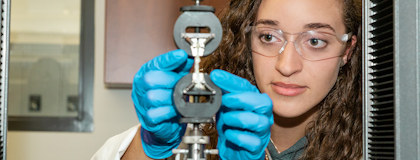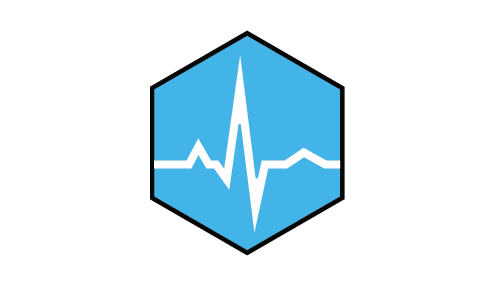
Biomedical Engineering
Medical Innovation + Engineering design and problem solving
Apply engineering principles, innovate technologies, and design solutions to improve human health and quality of life.
Be part of medical innovation. The growing field of Biomedical Engineering fuses engineering design and problem solving to improve human health.
Biomedical Engineers apply the principles and technologies associated with engineering to design innovative ways to improve human health and quality of life. In this hands-on program, you will study anatomy, physiology and pathology as well as courses in electronics, mechanics, and computer science.
Examine bio-systems from molecular to a full body scale to understand what happens when something goes wrong, as in the case of injury or disease. Biomedical Engineering can also be an entry point into medical school.

Program Information
Degree:
Bachelor of Engineering (B.Eng.)*
*Available in regular or co-operative education
With elements of:
- Biomechanics
- Biosignals and Medical Imaging
Our students have worked here:
- Baylis Medical
- Intellijoint Surgical
- Boundless Biomedical Bracing Inc.
- Northern Digital Inc.
- Senova Immunoassay Systems
- Trudell Medical
- Holland Bloorview Kids Rehabilitation Hospital
Regular Stream |
||||
| YEAR | FALL | WINTER | SUMMER | |
| 1 | Semester 1 | Semester 2 | Off | |
| 2 | Semester 3 | Semester 4 | Off | |
| 3 | Semester 5 | Semester 6 | Off | |
| 4 | Semester 7 | Semester 8 | Graduate! | |
Co-op Stream |
|||
| YEAR | FALL | WINTER | SUMMER |
| 1 | Semester 1 | Semester 2 | Off |
| 2 | Semester 3 | Semester 4 | Co-op |
| 3 | Semester 5 | Co-op | Co-op |
| 4 | Semester 6 | Semester 7 | Co-op |
| 5 | Co-op | Semester 8 | Graduate! |
Semester 1
- General Chemistry I
- Engineering and Design I
- Engineering Analysis
- Calculus I
- Physics with Applications
Semester 2
- General Chemistry II
- Introduction to Programming
- Engineering Mechanics I
- Calculus II
- Introductory Electricity and Magnetism
In addition to the four Interdisciplinary Design courses taken by all U of G Engineering students, Biomedical Engineering students can take these major-specific design courses:
- Bio-Instrumentation Design
- Sampled Data Control Design
- Biomechanical Engineering Design
Biomedical Engineering provides students with a common base of knowledge essential to engineering, and then allows them to select from a menu of electives to attain a concentration of knowledge in one of three areas, or to choose electives which broaden their general knowledge base. For an overview of all courses available in Biomedical Engineering, please consult the current Undergraduate Calendar.


